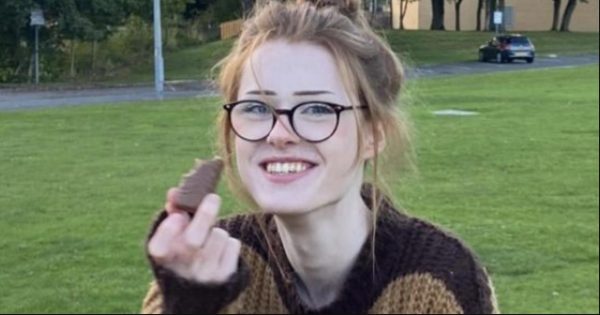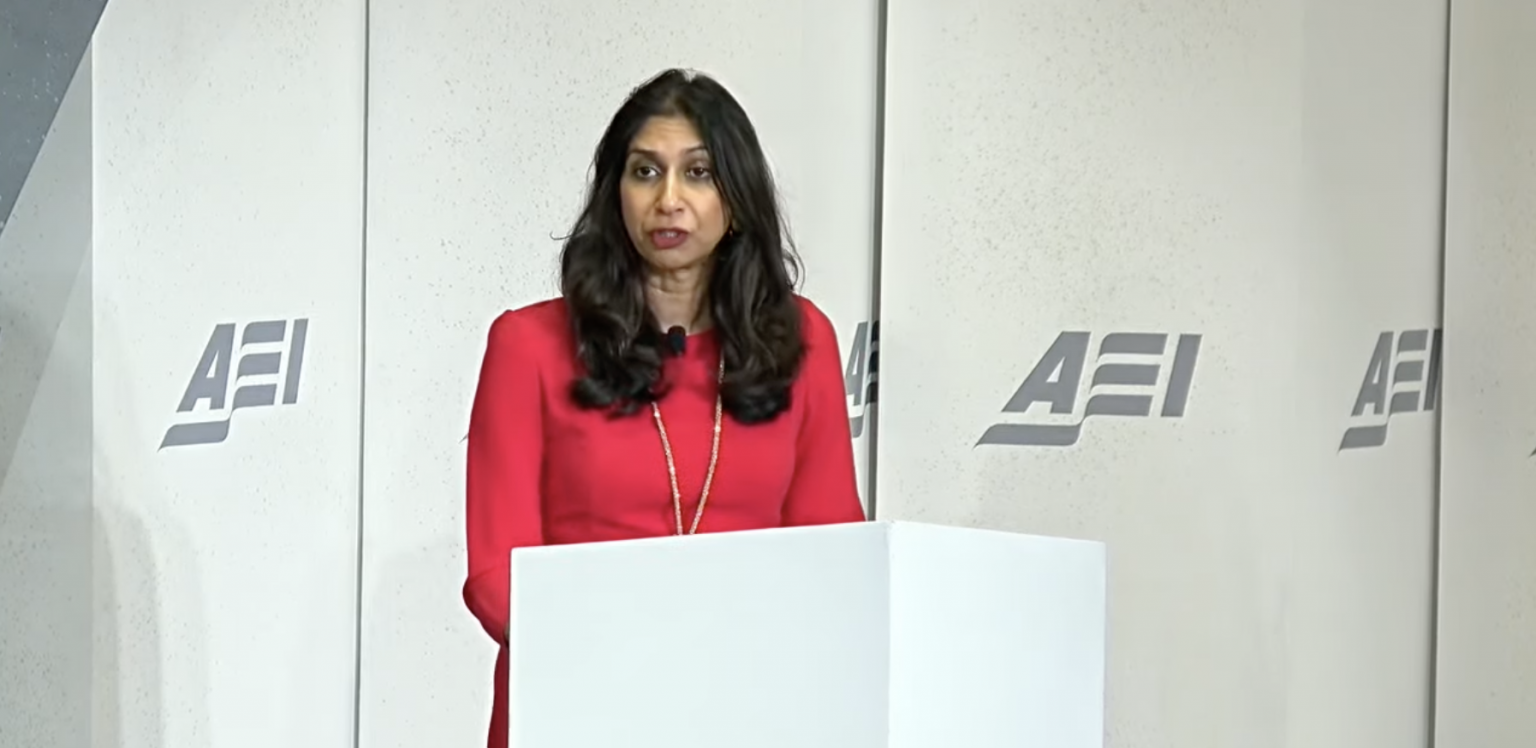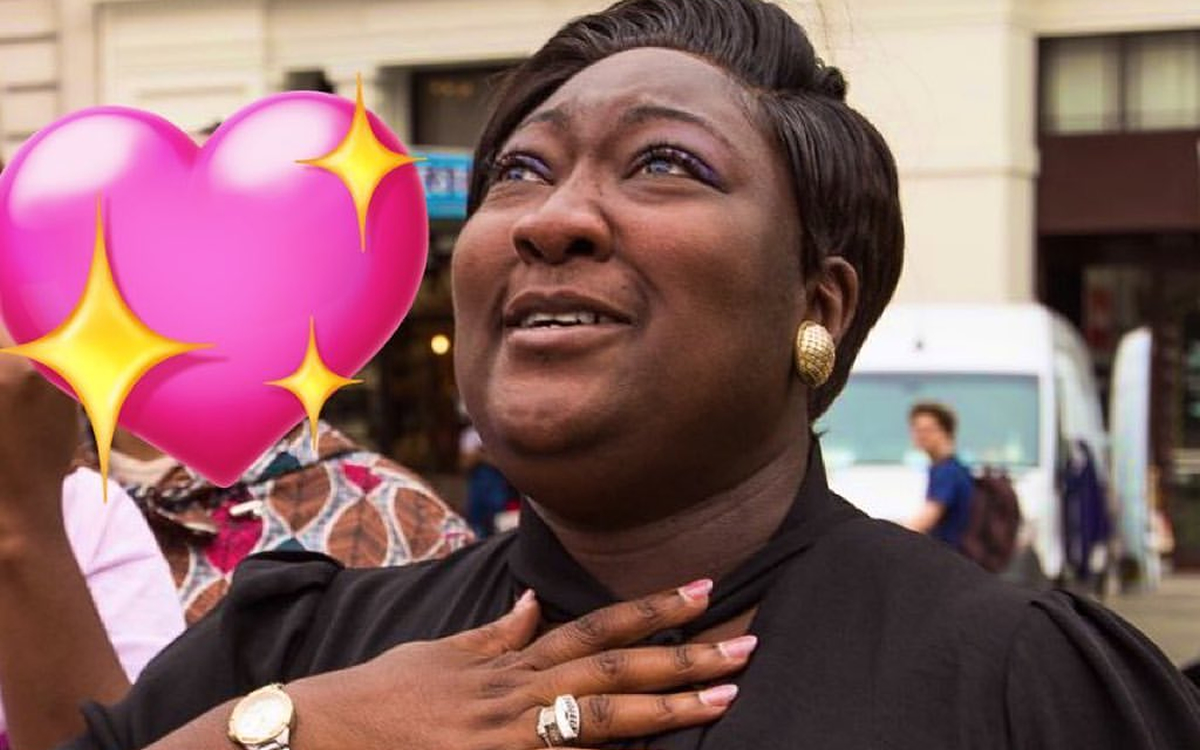United Kingdom
Transgender girl’s murder sparks outrage across UK
Two teenagers have been arrested in connection with Brianna Ghey’s death

The body of 16-year-old Brianna Ghey was discovered this past Saturday afternoon in the Linear Park in Culcheth, a small community located between the port city of Liverpool and metropolitan Manchester. She had been repeatedly stabbed and was pronounced dead at the scene by police and paramedics who responded.
Ghey, who lived in Birchwood, Cheshire, and was a junior at Birchwood Community High School had been bullied for her transgender identity, according to comments left on social media posts by friends and fellow students.
Her friends alleged she had been bullied and gang beaten at Birchwood Community High School for several years over the “simple reason of being trans.” In another post one claimed that school administrators, staff and faculty was aware of the bullying “refused to intervene.”
Cheshire Constabulary Detective Chief Supt. Mike Evans told British media outlets: “At this time, there is no evidence to suggest that the circumstances surrounding Brianna’s death are hate related,” adding “Patrols have been stepped up in the local area and officers will remain in the Culcheth area to provide reassurance and address any concerns that residents may have.”
On Monday Evans said that police believe the death of Ghey was “targeted” and that two teenagers, a 15-year-old boy and girl, both local residents, have since been arrested on suspicion of murder and are currently in custody.
Evans told reporters that a full investigation into the death are underway and that his officers are “doing all that we can to establish the exact circumstances of what has happened.”
“At this time, there is no evidence to suggest that the circumstances surrounding Brianna’s death are hate-related,” he stated.
As news coverage of the 16-year-old’s death spread, several British press outlets misgendered and deadnamed her, which drew the ire and criticism of LGBTQ advocacy groups including the Trans Safety Network which posted on Twitter: “We are appalled to note that @thetimes have now updated their article on the killing of Brianna Ghey to remove all references to her being a girl and to add her deadname.”
We are appalled to note that @thetimes have now updated their article on the killing of Brianna Ghey to remove all references to her being a girl and to add her deadname.
— Trans Safety Network (@trans_safety) February 13, 2023
Previous version:https://t.co/FYWQ4SMDyi
Current version:https://t.co/g4TNG8p7f3
Ash Sarkar, a a senior editor at London-based Novara Media and a leading feminist progressive voice in U.K. politics, tweeted her anger at the misgendering:
A 16 year old girl has been murdered, taken from her friends and family when her life was only just beginning. I cannot fathom the callousness involved in making the editorial decision to violate her dignity in death.
— Ash Sarkar (@AyoCaesar) February 13, 2023
Disgusting from @thetimes. https://t.co/NHB55kaaQK
As a result of the outcry, the Times did revise its coverage, although other outlets including the BBC News and Sky News failed to mention that Ghey was trans in their initial reporting.
A Trans Safety Network spokesperson told Britain’s leading LGBTQ media outlet PinkNewsUK:
“Whatever the specific circumstances leading to Brianna Ghey’s death, we are currently living through a period of unprecedented moral repugnance towards trans people, largely channelled through a compliant media which shows less and less respect for trans peoples’ lives and humanity.
“We have seen how even in death, the press has chosen to compound this harm by publicly disrespecting Brianna’s identity until public outcry forced them to reconsider.
“It shouldn’t take a public show of grief to value the lives of trans children, and her life should have been valued enough to not have been taken in the first place,” the spokesperson added.
The local MP, Charlotte Nichols, told PinkNewsUK that the local community is “reeling from the news” of Ghey’s death.
“Brianna’s family have been very clear in their statement who Brianna was: ‘a much-loved daughter, granddaughter and baby sister’. That should be the starting point for any coverage, and how we all talk about her,” Nichols told PinkNewsUK.
“Brianna was trans, and at this point it is not clear whether that was relevant to the circumstances surrounding her death, but there is absolutely no need whatsoever for anyone to publish her deadname when identifying her as trans in media coverage.”
“The least we can all do for Brianna is remember her for who she was, and not who she wasn’t, out of respect not only for Brianna but for her grieving family and friends,” she added.

“Brianna was a much loved daughter, granddaughter and baby sister. She was a larger than life character who would leave a lasting impression on all that met her. Brianna was beautiful, witty and hilarious. Brianna was strong, fearless and one of a kind,” her parents said in a statement released over the weekend.
“The loss of her young life has left a massive hole in our family, and we know that the teachers and her friends who were involved in her life will feel the same.
“We would like to thank everyone for their kind words and support during this extremely difficult time. We would like to thank the police for their support, and witnesses for helping with the investigation.”
A GoFundMe fund to assist the family has already raised £73,083 ($88841.16).
A verified fundraiser has been set up in memory of 16-year-old Brianna Ghey, after she was stabbed to deathhttps://t.co/Tju22qtZmy
— GoFundMeUK (@GoFundMeUK) February 13, 2023
United Kingdom
Anti-LGBTQ UK Cabinet minister fired
Advocacy groups frequently criticized Suella Braverman

Suella Braverman, the controversial British Home Secretary who was fired by Prime Minister Rishi Sunak in a phone call Monday, fired back publicly Tuesday releasing a scathing three page resignation letter accusing Sunak of “not having a plan” and failing to deliver promises made to the British people on among other items, hot button immigration and crime prevention issues.
Braverman took office in October 2022 as home secretary while Sunak formed a new government after former British Prime Minister Liz Truss stepped down on her 50th day in office amid a government crisis, making her the shortest-serving prime minister in British history.
The former home secretary was known for her far-right conservative views and in the past year had made a series of public comments in speeches and in the press that derided LGBTQ people, asylum seekers and illegal immigrants. Her remarks disparaging transgender British females oft times echoes similar sentiments stated publicly by the prime minister.
This past June at a Conservative Party conference, the prime minster was caught on a video clearly mocking trans females.
The prime minster makes reference to an opposition leader, although that person is not clearly identified. Sunak then took aim at Edward Jonathan Davey, a British politician who has served as leader of the Liberal Democrats since 2020.
“Over the same period of time, you might have noticed Ed Davey has been very busy,” Sunak says. “Like me, you can probably see that he was trying to convince everybody that women clearly had penises. You’ll all know that I’m a big fan of everybody studying maths to 18, but it turns out that we need to focus on biology.”
A recent YouGov UK international online research data and analytics technology group poll conducted earlier this month found that 49 percent of British voters wanted Braverman sacked.
PinkNewsUK reported calls for Sunak to fire Braverman have gotten louder over the course of last week, after she hit out at peaceful pro-Palestine protesters labeling their marches in London as “hate marches” and she also accused the Metropolitan Police of bias, which officers have said sparked far-right attacks on members of the force.
On issues over LGBTQ Britons, the former home secretary in October said that trans women should not be treated in female hospital wards. In an interview with Sky News, she said: “Trans women have no place in women’s wards or, indeed, any safe space relating to biological women.”
“The health secretary’s [Steve Barclay] absolutely right to clarify and make it clear that biological men should not have treatment in the same wards and in the same safe spaces as biological women,” she said. “This is about protecting women’s dignity, safety and privacy and that’s why I’m incredibly supportive.”
In September, in her speech to the American Enterprise Institute, a right wing think-tank in D.C., Braverman on the subject of political asylum remarked: “Where individuals are being persecuted, it is right that we offer sanctuary. But we will not be able to sustain an asylum system if, in effect, simply being gay or a woman, and fearful of discrimination in your country of origin, is sufficient to qualify for protection.”
In an interview with PinkNewsUK after her speech in D.C., Sebastian Rocca, the founder and chief executive of LGBTQ asylum charity Micro Rainbow, believes Braverman is trying to scapegoat migrants.
“The comments made by the home secretary are deeply disturbing,” he said. “LGBTQI people often face death, imprisonment and violence. When they come to the UK to seek safety, they have to go through an asylum system that is re-traumatizing and dehumanizing. In addition, the standard of proof is very high.”
“The system, as it is, is incredibly difficult. These comments seek to scapegoats migrants and LGBTQI people for political gain once again,” he added.
A new dynamic in attitude towards the UK’s LGBTQ community?
In addition to sacking Braverman, the prime minster radically overhauled his team in the Cabinet reshuffle including adding former Prime Minister David Cameron as the new British foreign secretary.
James Cleverly, whose job Cameron took over, was named as home secretary. His positions on most LGBTQ issues is in line with the Tory Party generally, however PinkNewsUK noted that while Cleverly has never voted on same-sex marriage, he expressed his support for equality in a blog post first published in 2005 titled “I like marriage.”
“Gay ‘marriage’ takes nothing away from heterosexual marriage and while there will be some civil partnerships which are done for the wrong reasons the same can be said of straight marriage. Best of luck I say,” he wrote.
He has also expressed support for LGBTQ inclusive education and for LGBTQ people in the military, but he did face some criticism when he said gay football fans would have to be “respectful” when traveling to Qatar for the World Cup.
Overall the British LGBTQ publication reported, is that the new home secretary is “an obvious step up from Braverman.”
Cameron’s record on LGBTQ rights, especially while serving as prime minister, PinkNewsUK reported has been favorable. He voted in favor of civil partnerships in 2004 and in favor of the Equality Act in 2007, and later voted in favor of same-sex marriage.
Former Health Secretary Steve Barclay’s departure is a relief for some LGBTQ Brits, especially in light of his recent campaign against trans people in the British healthcare system.
In a speech at the Conservative Party conference in October, Barclay spoke out about his plans to introduce “sex-specific” language throughout the health service when referring to treatments and advice for menopause and some types of cancer. In the same speech, he announced plans to ban trans people from single-sex wards.
However Barclay’s replacement has had a troubling record on transgender healthcare issues. In 2018, Atkins, who was then minister for women, was criticized when she called for “caution” before treating young trans people in an interview with the Telegraph.
“The treatments are so serious and life-changing. I’m a little cautious of the use of those treatments because of the potential for the rest of their lives,” she said.
The prime minster is also facing renewed calls and anger over the omission of announcing a ban on conversion therapy in the King’s Speech. The Equality and Human Rights Commission has been urging Sunak to uphold a pledge to enact a ban on the discredited practice.
The BBC reported that earlier this year the EHRC wrote to the government to urge them to include the legislation in the speech, which sets out the government’s priorities for the coming years.
A spokesperson for EHRC told the BBC: “We have long supported proposals to end these practices. Conversion practices, aimed at changing someone’s sexual orientation or personal understanding of their own gender, can be incredibly harmful to people with the protected characteristics of sexual orientation and gender reassignment.
We will continue to stand ready to provide expert advice and hope the government will uphold its commitment to ban harmful conversion practices.”
Its lack of inclusion in the King’s Speech is thought to be over disagreements within the Conservative Party the BBC noted regarding what form a ban should take, and concerns over how it could impact freedom of expression around issues such as gender identity, as well as any potential impact on religious freedoms.
Robbie de Santos, director of external affairs at Stonewall UK, told the BBC: “[The government] has given the green light for the abuse against LGBTQ+ people to continue unchecked. Rather than getting mired in a cynical cultural war, it should be making decisions based on what the evidence and expertise said.”
United Kingdom
UK lifts travel ban on Ugandan opposition leader over anti-gay song lyrics
Bobi Wine had been prohibited from country since 2014

The U.K. has lifted a travel ban on Robert Kyagulanyi, a renowned Ugandan rapper known as Bobi Wine who has become the leader of the country’s opposition, over a 2014 song with homophobic lyrics.
Wine on Sunday confirmed the British government’s decision after about 10 years of being banned from his controversial anti-gay lyrics perceived to incite homophobic attacks against individuals he referred to as “battymen.”
“I am very glad to inform you that the ban against me from entering the U.K. has finally been overturned, and I will soon be visiting the U.K. after more than 10 years,” he said.
The homophobic lyrics the LGBTQ rights groups cited in petitioning the British government to ban him from traveling to the U.K. were: “Fire will burn the batty man. Burn all the batty man. All Ugandans get behind me and fight the batty man.”
LGBTQ rights activists in a petition they launched in July 2014 on Change.org demanded the British Home Office “immediately” deny Wine’s entry into the country and cancel his concerts in London and Birmingham.
The petitioners accused Wine of writing “blatant homophobic lyrics (that) call for gay people to be attacked or killed” and cited the U.K.’s 2008 Criminal Justice and Immigration Act that criminalizes the incitement of hatred based on sexual orientation. The activists said that allowing Wine to proceed with his two concerts in August of the same year would “raise tensions” and prove “unacceptable” to the U.K., which “prides itself on tolerance and understanding.”
The petitioners not only wanted Wine banned from performing in the U.K., but also in the Netherlands, France, Sweden, Denmark and other European countries.
Wine at the time was unremorseful and stressed he would not be coerced into backing homosexuality by the cancellation of his performances to support the Ebonies, a Ugandan drama and music group.
“I am a Ugandan and not a Londoner and I’m following the Ugandan constitution,” Wine told a Ugandan media outlet. “I did not make the laws, I follow them.”
He also claimed his strong anti-gay position was a reflection of “99 percent of Ugandans” and mocked so-called proponents of homosexuality for priding themselves in “their liberalism and support for human rights.” He demanded they allow “me my right of expression,” even if they were not comfortable with his homophobic opinion.
Wine’s controversial anti-gay stand also included criticism of then-U.S. President Barack Obama over his support of LGBTQ rights in response to Uganda’s 2014 Anti-Homosexuality Act that imposed a life sentence for gay people. The country’s Constitutional Court overturned it.
Wine in 2017 entered politics and won a seat in the Ugandan Parliament. He ran against incumbent President Yoweri Museveni, who rules the country with an iron first, in 2021.
Wine, who is a member of the National Unity Platform, is currently Uganda’s opposition leader. He has been vocal in demanding the international community hold Museveni accountable for his government’s widespread human rights violations.
While acknowledging the British government’s move to lift his travel ban, Wine applauded his lawyers in England for the “relentless fight” and his political supporters, including those in the diaspora, for “constantly raising our voice through protests” and petitioning higher offices.
“Their main argument has been that it is unfair to open their doors for Gen. Museveni, a world-renowned tyrant, and yet continue to shut the door for me who, together with many others are trying to build a free and democratic country,” he said.
His sentiments are in response to Museveni’s democracy and human rights record, particularly his signing of the Anti-Homosexuality Act 2023 into law in May.
Several Western nations have imposed sanctions on Uganda and several government officials behind the punitive law. The Biden-Harris administration last week announced plans to remove Kampala a program that allows sub-Saharan African countries to trade duty-free with the U.S.
The U.S. announcement came after increased pressure on Museveni to reverse the implementation of the law and meeting with several Ugandan human rights activists and exiled dissidents.
Kakwenza Rukirabashaija, an award-winning Ugandan author who is exiled in Germany, has written books that are critical of Museveni’s governance. He applauded the U.S. decision and noted his and other activists’ visit to the State Department earlier this year.
“We, a few months ago visited the Department of State in the USA and explained how Uganda as a beneficiary of AGOA (African Growth and Opportunity Act) would violate the American foreign policy on human rights,” said Rukirabashaija on his X account. “I’m glad that they listened. May you continue to listen to the cries of Ugandans.”
United Kingdom
UK Black Pride celebrates 18 years of empowerment
Phyll Opoku-Gyimah founded event in 2005

In a world where diversity and inclusivity are increasingly valued, UK Black Pride stands as a beacon of empowerment and celebration. As it prepares to mark its 18th anniversary on Saturday, the event continues to shine a spotlight on the experiences, struggles and triumphs of LGBTQ individuals from Black, Asian, and other minority ethnic backgrounds. With each passing year, UK Black Pride grows stronger, amplifying its message of unity, acceptance, and change.
Founded by Phyll Opoku-Gyimah, affectionately known as Lady Phyll, in 2005, the event emerged from the necessity to create a space that speaks directly to the intersection of race and LGBTQ identity. Traditional Pride events, while important, often fall short in fully addressing the unique challenges faced by individuals who belong to both marginalized communities. Recognizing this gap, UK Black Pride was born with the intention to provide a platform for underrepresented voices.
The essence of UK Black Pride lies in its commitment to fostering unity within diverse communities.
“UK Black Pride’s Community Stage is where thought-provoking discussions intertwine with the performances of emerging musicians and talented spoken word artists,” UK Black Pride says in a statement. “This event celebrates the kaleidoscope of identities that exist within the LGBTQ+ spectrum, highlighting the beauty of difference while erasing the lines that have historically divided us. Attendees find solace in connecting with people who share their experiences, building a support network that extends beyond the event itself.”
Over the years, UK Black Pride has not only created a safe space but also played a crucial role in amplifying the visibility of LGBTQ individuals of color, and this year’s no different. Visibility is key to breaking down stereotypes, dispelling misconceptions, and creating a world that values and respects all identities. This year, programs that prioritize health, such as breast cancer and Best for My Chest Campaign, refugees, finding and building connections, faith, sexuality, and even poems, would go in full swing. The anniversary, which NYX Professional Makeup has sponsored, would serve as a reminder of the progress made, and the battles yet to be fought.
Only recently, it was reported that two queer people were stabbed outside a south London nightclub. This is testament of the rife homophobia that continues to trump the country. It is also this premise upon which UK Black Pride is built. The 18th anniversary therefore becomes a testament to the resilience of both the event itself, and the communities it represents. Against the backdrop of ongoing struggles for equality and justice, this celebration offers a moment of joy and triumph. It stands as a symbol of the strength found in unity and the determination to overcome challenges. To this vain, music genres like Afrobeats and Amapiano will be played from leading DJs like DJ Biggy C, Scarlett K, DIBS, etc.
As UK Black Pride enters its 18th year, its impact continues to extend beyond the event itself. The visibility it creates, the conversations it sparks, and the connections it forges all contribute to a broader cultural shift.
“With each passing year, the event moves us closer to a world where everyone’s identity is embraced, and discrimination is a thing of the past. This event, born out of necessity, continues to stand tall as a beacon of empowerment, amplifying the voices of LGBTQ individuals from minority ethnic backgrounds. As we honor this milestone, let us also recognize that the journey towards equality and acceptance is ongoing. UK Black Pride reminds us that the struggle is real, but so is the strength that comes from unity and love.”
-

 State Department3 days ago
State Department3 days agoState Department releases annual human rights report
-

 Maryland5 days ago
Maryland5 days agoJoe Vogel campaign holds ‘Big Gay Canvass Kickoff’
-

 Politics4 days ago
Politics4 days agoSmithsonian staff concerned about future of LGBTQ programming amid GOP scrutiny
-

 District of Columbia1 day ago
District of Columbia1 day agoCatching up with the asexuals and aromantics of D.C.












